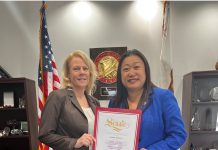
Stocks And The White House
The approaching Inauguration of our new President brings uncertainty in some areas even though his election spurred a strong stock market rally. It is interesting to compare market changes in various Administrations. The period beginning with the 1980 election of President Reagan includes four two-term Presidencies, each having reflected a party change, as well as the single term of President George H. W. Bush.
The Inauguration of President Regan took place on January 20, 1981 with the Dow Jones Industrial Average at 947. Stocks did well during his terms and climbed to 2235 on the Dow by 1989, as President George H.W. Bush then took office with the Dow at 3241. Stocks’ bull run accelerated as President Clinton took office with the Dow at 3241 and left it with the Dow reaching 10,587.
The 9/11 attacks and the Financial Crisis beginning in 2007 impacted the two terms of President George W. Bush, who was succeeded by President Obama after the Dow had retreated to 7949. It is now hovering just below 20,000, second in recent years to the tripling during President Clinton’s two terms.
Perhaps surprisingly, the stock market has done better when the President is a Democrat than a Republican. Calculations by Forbes going back to 1929 show average total returns for 4-year terms of Republican Presidents at 16.6% and of Democrats at 57.4%. These averages are skewed by the total “return” under President Hoover of a negative 77% followed by a positive 205% for President Roosevelt’s first term.
Eliminating these extremes by going back only to 1945 still show average returns of 11% under Democrat Presidents and 6% under Republicans. It would be mistaken to conclude that these historical differences are due to election results as the White House is only one factor in an economy that responds to international economic trends, technological changes, an independent Federal Reserve, energy prices and whether Congress is controlled by the opposing party.
One factor is whether the party in power favors expansionist economic policies by favoring business investment through tax and fiscal policies. These are usually associated with Democrats but President-elect Trump has reiterated support for a trillion dollars funding of badly needed infrastructure work.
Short-term market action responds most sharply to investor confidence or the lack thereof. The 6% rally since the President-elect’s upset victory appears to reflect increased confidence in a market-oriented Administration. This mirrors the advances after the initial elections of both President Reagan and President Clinton, who both implemented tax and fiscal policies that boosted the economy.
For investors, this means continuing to anchor stock portfolios with blue chip companies showing superior results, strong balance sheets and rising earnings. Investors should fret less on trying to catch up with short-term market fashions and concentrate on stocks that can keep their courses as we encounter the inevitable choppy seas of business cycles and fluctuating markets.
Medical stocks provided examples as they dipped on the President-elect’s comments on pharmaceutical prices. There is certainly room for improvement here, which will be forced by legislative changes to the Affordable Health Plan. Companies with pipelines of innovative drugs will do well and candidates include Celgene (CELG-$117) and AbbVie (ABBV-$61) as timely buys. Amgen (AMGN-$155) slumped in 2016 despite solid financial results, just won an important patent suit and will announce in March clinical updates on a major cardiovascular trial. This big biotech yields 2.9% with dividend increases for the last five consecutive years.
Primerica (PRI-$72) is a new buy. This Georgia-based provider of term life insurance, mutual funds and annuities reports earnings on February 8. Growth in earnings has averaged 22% over the last three quarters and there is a modest 1% dividend with further increases ahead. I have always felt it more profitable to buy stock in the companies that provide these products rather than the products.
The recent elections prompted considerable uneasiness among many clients and readers. President-elect Trump has not been tested in national politics and will need the support of the country.
The office of the President seems to bring (or force) growth to its occupants. Little was expected of President Truman when he suddenly took office but he then led during both the end of World War II and the beginning of the Cold War, launched the Marshall Plan to rebuild Europe, integrated the armed forces and presided over an unprecedented surge in economic prosperity. During his seven years in office, the stock market doubled.
Tony Crowell manages stock portfolios for individuals and their trust and retirement accounts with CROWELL•ROBERTS Investment Counsel, a registered investment advisor in Laguna Beach since 1995. [email protected] 949.494.1376/800.697.2622




